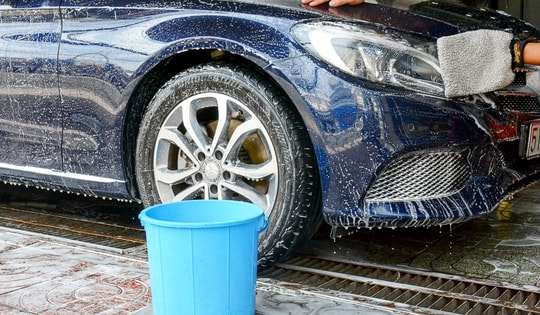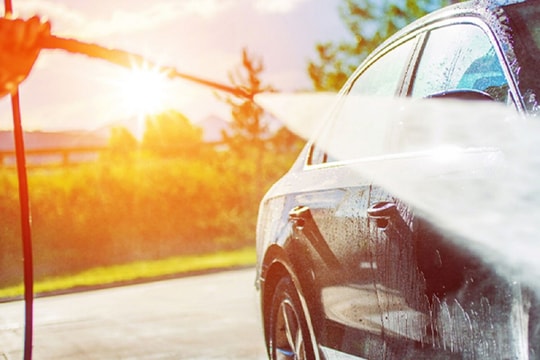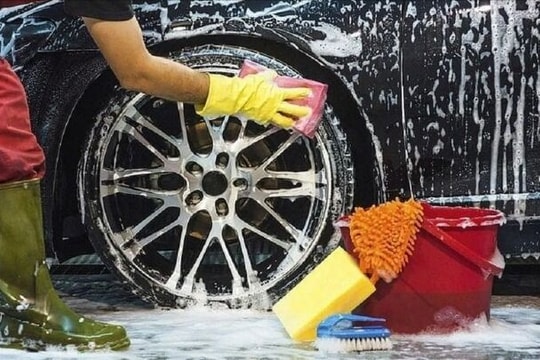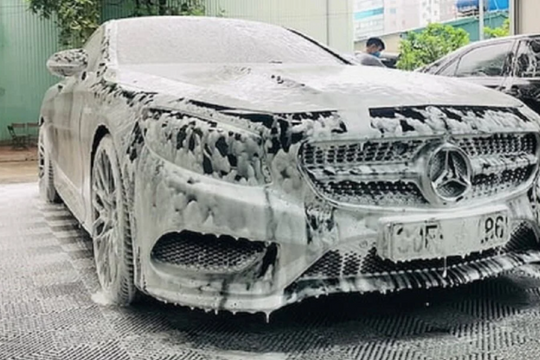Washing a car with a high pressure washer can "kill" the engine.
High pressure washers bring convenience and speed when washing cars, however, according to experts, if washed incorrectly, it can quickly damage the car engine.
High pressure car washer or also known as high pressure car washer is an industrial washing machine with the characteristics of high water output pressure, extremely strong washing, helping to remove stains quickly and effectively even in hard-to-reach locations and details such as undercarriage, wheels... In particular, users can adjust the washing pressure of the high pressure car washer as desired by using a high pressure spray gun.
Although it has many advantages and conveniences, if the user does not know how to wash it, it will cause not only the engine but also many other parts to be damaged quickly.
Wash the car immediately after turning off the engine.
Many users clean their cars right after turning off the engine, which is absolutely not recommended. After running a long distance, the engine will be very hot. If the user immediately uses a high-pressure washer to wash the car, the temperature will change suddenly, damaging the engine, deforming the frame, and even causing internal fractures.
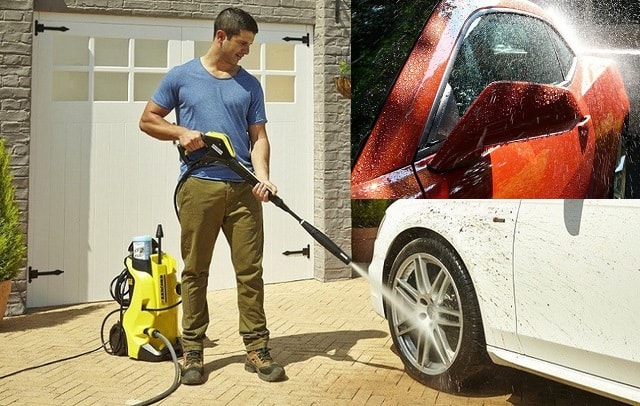 |
| Mistakes when washing cars with high pressure machines can cause rapid damage to the car. |
Spray water directly into the exhaust pipe vent, spark plugs, and electrical connections.
While washing cars, many people have the habit of spraying directly on parts such as exhaust pipes, spark plugs, and electrical connections. If sprayed directly on these parts, it can cause damage, causing the parts to quickly rust and break due to stagnant water. If you wash your car this way often, it will cause the car to stop working.
Spray water directly into the engine
For the engine compartment, after opening the hood, some people often subjectively use a high-pressure washer to spray hard on the stains, this is completely a mistake. Once water penetrates the electrical connections, it can lead to electrical short circuits, electrical fires, and can even kill the engine of the device, endangering the safety and life of the user.
Therefore, according to the advice of experts, users should use waterproof tape to cover the electrical connections, use plastic to cover the exhaust pipe and spark plugs, and then start cleaning. If the spark plugs are accidentally sprayed with water, users can remove them and dry them.
Spraying water perpendicular to the car causes paint damage.
When using a spray gun, many people accidentally hold the spray gun perpendicular to the vehicle, the high water pressure will lead to scratches and damage to the surface paint. Therefore, users should spray from a minimum distance of 30 cm, both cleaning the vehicle and protecting the car's paint to always be shiny.
It can be seen that high pressure washers provide impressive cleaning ability, but just a little careless mistake when washing the car can lead to unfortunate consequences such as engine failure or danger to the user.
Therefore, according to automotive technical experts, if using a conventional cold water high pressure washer, users need to let the car rest for about 10 to 15 minutes to let the engine cool down, avoiding negative effects that can affect the car when spraying water immediately such as engine cracks, etc. If using a hot steam washer, users can spray water on the entire body of the car because hot steam does not affect the engine, but also helps stains to wash away quickly and easily.
Users should note to only spray lightly to wet the car body, soften stains, avoid strong spraying which can cause small scratches and damage the car's paint.
After wetting the entire car, the user sprays the mixed specialized chemicals onto the car, spraying and washing in order: front wheels, chassis, engine block, rear wheels. The user can use a brush, scrubber, or soft cloth to assist in washing the car. After washing the entire car, continue to operate the car washer to spray and wash away the cleaning chemicals and dirty water, preventing them from drying and sticking to the car, making them difficult to wash.
After rinsing off the water and chemicals from the car, the user should blow dry the car and use a soft towel to dry it, avoiding leaving dirty water on the car's surface.

